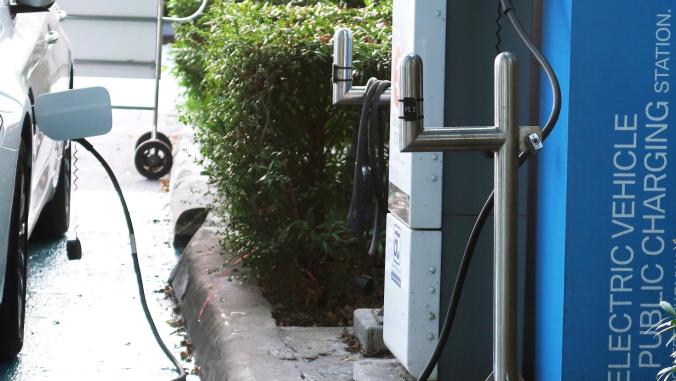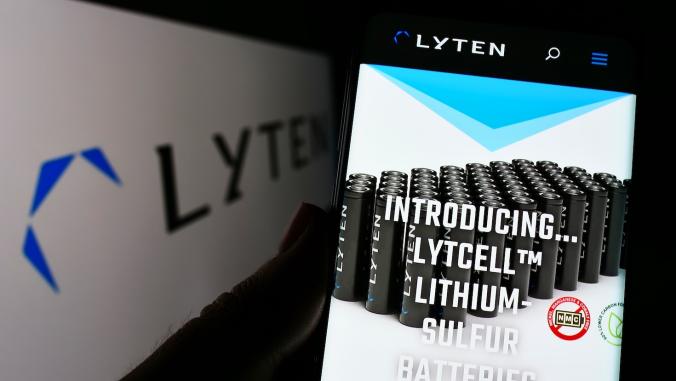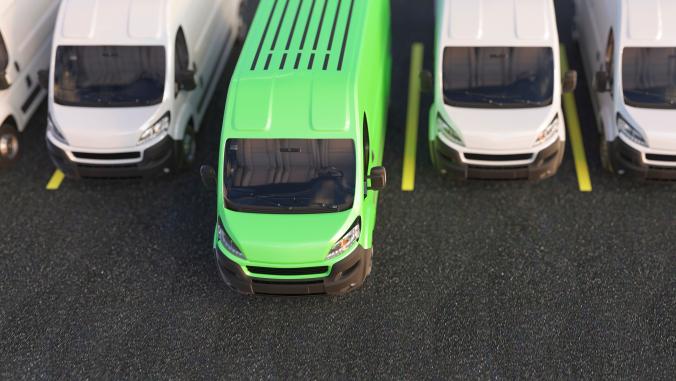The breakout biofuel for heavy-duty fleets
The strategy behind using "renewable diesel" is to reduce transportation emissions now, instead of later.

Companies and cities, many of them in California and Oregon, have a growing interest in renewable diesel because it's a way to reduce their carbon emissions by dropping it straight into the diesel engines of the heavy-duty vehicles they're already operating or plan to operate.
This article is adapted from GreenBiz's weekly newsletter, Transport Weekly, running Tuesdays. Subscribe here.
Biofuels have had a long history of controversies. I've covered my fair share of 'em over the years, and as a result, I pretty much stopped paying close attention to the market because it was mostly just a big ol' bummer. And electrification is the big transportation story, right?
Well, last year the fleet manager for the City of Oakland Public Works, Richard Battersby, told me about how he had started running more than 350 Oakland city vehicles on a biofuel called "renewable diesel." The drop-in fuel was made by a Finnish oil company called Neste and sourced from Oakland's own waste oils from restaurants and other businesses.
Turns out there's a whole circular economy for transportation happening over in GreenBiz's backyard. Go figure. Battersby was a speaker at our VERGE 19 event (which was in Oakland), and he wouldn't stop raving about renewable diesel to our audience.
I learned another thing about renewable diesel last week from Neste, the world's largest producer of it. The company is making a truck-load of money off the stuff.
Neste released its 2019 annual earnings Friday and reported a record operating profit of over $2 billion, much of it driven by growth in sales of its renewable diesel. Neste CEO Peter Vanacker said in a release about the earnings that "year 2019 was Neste's best ever."

I sat down with the president of Neste's U.S. division, Jeremy Baines, at the Bloomberg Mobility Summit (a day before Neste's earnings) to learn a little more about what Neste has been up to and what it plans for 2020. In a nutshell, companies and cities, many of them in California and Oregon, have had a growing interest in renewable diesel because it's a way to reduce their carbon emissions by dropping it straight into the diesel engines of the heavy-duty vehicles they're already operating or plan to operate.
The idea is they can reduce transportation emissions now, instead of later, and also avoid the investment of electric charging infrastructure today. Many of the really hard-to-electrify big truck fleets are worried that electric isn't yet cost-effective for them. And because of the low-carbon fuel standards in California and Oregon, renewable diesel is price-competitive with fossil fuel-based diesel.
When it comes to biofuels, the devil is really in the details of what they're actually made of. Some biofuels are more sustainable than others, and some aren't sustainable at all. And here, Neste, which has been doing this a while, has been pioneering how to be sustainable.
Neste says it sources more than 80 percent of its renewable fuels globally from organic wastes such as used cooking oil and animal fats, while 20 percent comes from vegetable oils such as palm, soy, camelina and canola. An entire 100 percent of the renewable fuels sold in the U.S. are from wastes.When it comes to biofuels, the devil is really in the details of what they're actually made of.
That's a big deal in an industry that has been plagued by an uproar over land issues and deforestation to produce crops for biofuels. And in fact, biofuels have a pretty bad reputation in general. Maybe renewable diesel will be able to change that.
Here are five things you should know about Neste and its renewable diesel that I learned from chatting with Baines last week. (BTW, Neste is a sponsor of VERGE 20, which will be in San Jose, California, this year):
- Neste is a 72-year-old oil company that is actually changing: The company still sells fossil fuels — it has capacity for 15 million tons of fossil fuels and 3 million tons of renewable fuels — but that's actually a major shift compared to its larger oil industry peers, which have been more focused on natural gas or more efficient oil production. Take the words of Dow CEO Jim Fitterling, who last week essentially said Dow has hitched its wagon to fossil fuels as a feedstock for plastics for a good long while.
- The polyfuel fleet pitch: I asked Baines why he thinks a big fleet should go with "renewable diesel" over buying electric vehicles. This is what he said: "Neste is in the business of fighting climate change. There is no single solution. We see that passenger vehicles are being electrified, and that makes perfect sense. We see medium duty’s being electrified, and that makes perfect sense. But when you get into the hard-to-abate sectors — heavy-duty trucking, agriculture, construction, aviation, marine — there’s going to be a mixture of different solutions out there. It’s going to be a polyfuel world, where you’re going to have electric and hydrogen and [renewable natural gas] and renewable fuels. So it’s going to be a mixture of things."
- Singapore plans: Neste is building out a big biorefinery in Singapore that will help it make many more tons of renewable diesel, sustainable aviation fuel and bioplastics. The plant is supposed to come online in 2022.
- Bio-jet fuel, coming up: Neste just signed on Jetblue as a partner, and JetBlue plans to use Neste's bio-jet fuel on flights from San Francisco International Airport starting in this year. In this industry, the big barrier is producing a bio-jet fuel at scale for a price that can compete with regular jet fuel.
- Policy is a big deal: Beyond Europe, Neste only sells renewable diesel in U.S. states that have a low-carbon fuel standard that can make its biofuel competitive. Likewise, Neste benefited significantly from the retroactive approval of the U.S. Blender's Tax Credit. The takeaway? If you want to be successful in biofuels markets, get yourself some lobbyists.




